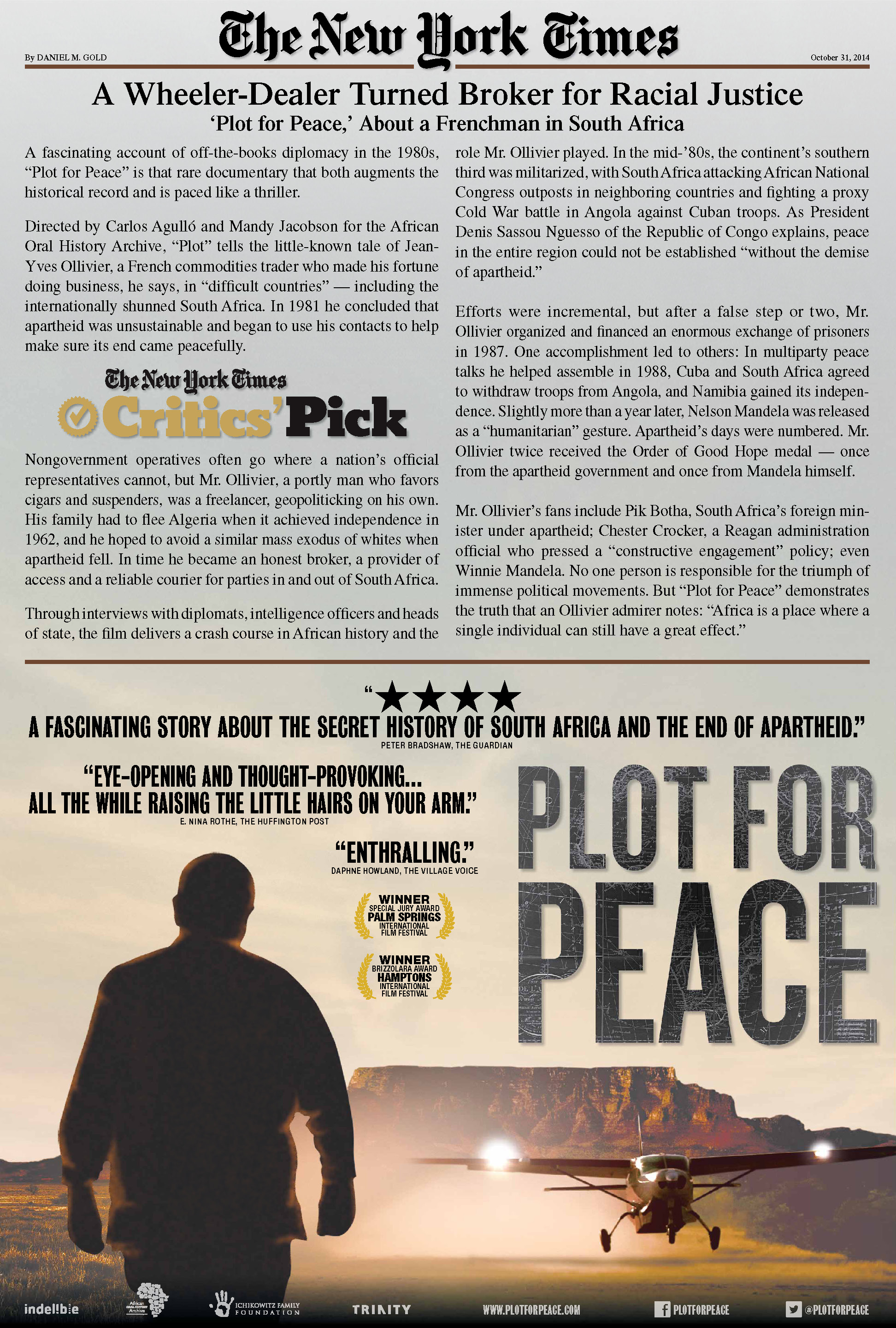A Wheeler-Dealer Turned Broker for Racial Justice
‘Plot for Peace,’ About a Frenchman in South Africa
By DANIEL M. GOLD OCT. 30, 2014
A fascinating account of off-the-books diplomacy in the 1980s, “Plot for Peace” is that rare documentary that both augments the historical record and is paced like a thriller.
Directed by Carlos Agulló and Mandy Jacobson for the African Oral History Archive, “Plot” tells the little-known tale of Jean-Yves Ollivier, a French commodities trader who made his fortune doing business, he says, in “difficult countries” — including the internationally shunned South Africa. In 1981 he concluded that apartheid was unsustainable and began to use his contacts to help make sure its end came peacefully.
Nongovernment operatives often go where a nation’s official representatives cannot, but Mr. Ollivier, a portly man who favors cigars and suspenders, was a freelancer, geopoliticking on his own. His family had to flee Algeria when it achieved independence in 1962, and he hoped to avoid a similar mass exodus of whites when apartheid fell. In time he became an honest broker, a provider of access and a reliable courier for parties in and out of South Africa.
Through interviews with diplomats, intelligence officers and heads of state, the film delivers a crash course in African history and the role Mr. Ollivier played. In the mid-’80s, the continent’s southern third was militarized, with South Africa attacking African National Congress outposts in neighboring countries and fighting a proxy Cold War battle in Angola against Cuban troops. As President Denis Sassou Nguesso of the Republic of Congo explains, peace in the entire region could not be established “without the demise of apartheid.”
Efforts were incremental, but after a false step or two, Mr. Ollivier organized and financed an enormous exchange of prisoners in 1987. One accomplishment led to others: In multiparty peace talks he helped assemble in 1988, Cuba and South Africa agreed to withdraw troops from Angola, and Namibia gained its independence. Slightly more than a year later, Nelson Mandela was released as a “humanitarian” gesture. Apartheid’s days were numbered. Mr. Ollivier twice received the Order of Good Hope medal — once from the apartheid government and once from Mandela
Mr. Ollivier’s fans include Pik Botha, South Africa’s foreign minister under apartheid; Chester Crocker, a Reagan administration official who pressed a “constructive engagement” policy; even Winnie Mandela. No one person is responsible for the triumph of immense political movements. But “Plot for Peace” demonstrates the truth that an Ollivier admirer notes: “Africa is a place where a single individual can still have a great effect.”
Plot for Peace
Opens on Friday
Directed by Carlos Agulló and Mandy Jacobson; written by Stephen W. Smith; directors of photography, Rita Noriega and Diego Ollivier; edited by Mr. Agulló; music by Antony Partos; produced by Ms. Jacobson; released by Trinity. Running time: 1 hour 22 minutes. This film is not rated.
Click here to read the online version of the review







